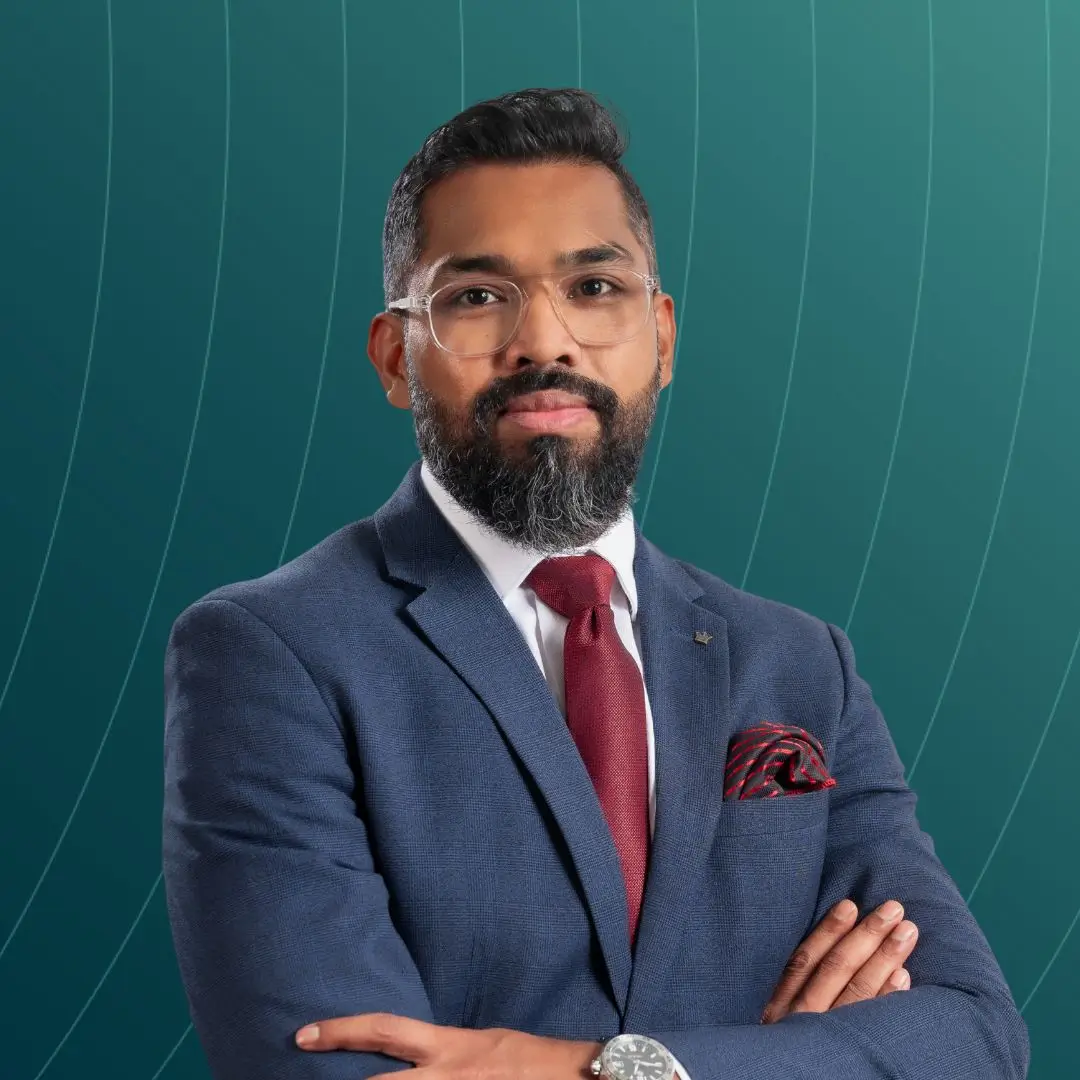.svg)
.svg)
.svg)
.svg)
.svg)
.svg)
.svg)
.svg)
.svg)
.svg)
.svg)
Leaders in the spotlight: Why the shift from automotive to defense is not a foregone conclusion

Germany's automotive industry, a key driver of the economy for decades, is in the midst of profound change. As it grapples with electrification, digitalization, global competitive pressures, and downsizing, the defense industry is experiencing a historic upswing. Driven by geopolitical tensions, the Special Fund for the German Federal Armed Forces, and a growing social acceptance of defense spending, the demand for qualified personnel is growing rapidly – not only in production and technology, but also at management level.
What at first glance appears to be an obvious opportunity for the transfer of talent – for example under the slogan “cars to armaments” coined by the Federal Association of the German Security and Defense Industry – turns out on closer inspection to be a challenging bridge to build.
Benedikt Douglas, former Partner at Deininger, talks about how it can nevertheless succeed, what skills are required and what companies should look out for when selecting management personalities, based on his profound and personal experience in the defense and automotive industries.
Benedikt, what is your view of the general industry and how do you perceive the general mood in the defense industry?
The industry is on the move – that is clearly noticeable. For decades, it operated in the background, with tight budgets and little political support. Now, under the impact of geopolitical developments, the Russian war of aggression against Ukraine and with a political tailwind, the situation has changed fundamentally.
As a result, for the first time in a long time, we are seeing not only a willingness to invest in defense, but also a real tailwind from society. Companies – from large system houses to specialized SMEs – are feeling this directly: the number of applicants is rising, especially among qualified specialists.
Nevertheless, there is also caution, particularly with regard to the question: How sustainable is this upturn? The decisions that are being made now - for new plants or additional staff - require long-term planning. This cannot be taken for granted in a politically driven market. After all, we are not talking about consumer goods here, but about safety-relevant high technology in highly regulated markets.
In the public debate, the focus is often on skilled workers in production. What is the situation at management level?
Clearly, the shortage of skilled workers is affecting the entire industry – not just on the factory floor, but also in upper management. This is associated with particular challenges. While the transition to operational roles, for example in production, is easier to translate into modern processes, different rules apply to management positions.
Many processes are similar at first glance – production lines, series production, increasing efficiency. However, anyone wishing to take on responsibility here not only needs management experience, but also a deep understanding of the industry's special framework conditions: long project lead times, approval processes, political influences, export restrictions – these are issues that are often unfamiliar to people in other industries and their complexity is often underestimated.
Are management positions currently being filled by career changers – or do industry insiders continue to dominate?
That depends very much on the individual case, but of course there is a general demand for skilled workers: the need for development and expansion is real – also at management level. And yes, many companies are rethinking their approach. But the assumption that you can simply take someone from the automotive industry and place them into a key position in the safety industry is, in my opinion, far too short-sighted.
What works is targeted knowledge transfer. There are certainly parallels: In areas such as series production, process control, increasing efficiency or digitalization, the automotive industry can provide valuable impetus – which of course includes the use of artificial intelligence. The defense industry is currently undergoing a complete transformation from manufacturing to series production – and this is where automotive managers with production and scaling experience are needed. The upstream processes and functions – from close integration with research & development, purchasing and supply chain to customer management – are also part of the necessary realignment. At the same time, many organizations have to further develop modern HR structures: HR as a business partner, as a driver of transformation and guarantor of a sustainable talent pool.
It takes candidates who are prepared to adapt to new structures. The defense industry works the same way in many areas, but is at the same time very different. Customers are states, not consumers. Decisions depend not only on supply and demand, but also on approvals, political situations and international agreements. If you want to work successfully in this field, you have to be prepared to actively think your way into this new world.
What are the reasons for a change at management level – and for whom is it suitable?
Today, there are many more reasons for a change than just a few years ago. There has been a noticeable change in attitude. Whereas in the past you sometimes had to justify yourself if you worked in the defense industry, it was difficult to interest external candidates in a change at all. Today, it's much more about identifying the right candidates for the company in question. Personality, professional background and a strong, recognizable motivation to make a contribution in this technologically exciting environment - that's what counts. Here too, as everywhere else, quantity is not quality. My many years of operational experience in industry and defense are a great help in this selection process.
The defense industry now encompasses far more than vehicles, weapons and ammunition. High technology alongside industrial vehicle production, cyber security alongside sophisticated logistics, communication solutions, sensor technology, robotics – all state-of-the-art technologies that have long played a major role in the civilian economy, but are now being integrated and further developed at groundbreaking speed in the modern defense industry. This makes the industry not only broader, but also more attractive.
Long a male domain, there are now also promising developments for female managers who are enthusiastic about this exciting industry. Direct dialog in the approach and recruitment process is particularly important here in order to break down any traditional prejudices against the industry that may still exist.
How do you identify the right personalities?
This is where experience counts above all – in both worlds. The decisive factor is whether someone fits in culturally as well as professionally, whether he or she is willing to adapt to new structures – and whether the person understands what it means to work in a security-relevant environment. It's about building bridges between industrial cultures – between private-sector mindsets and a politically regulated market environment.
And that's where executive search comes in. The candidate market is differently structured and difficult to grasp, the requirements are high – and time is pressing. We have found that a targeted, discreet approach with a high level of industry knowledge is the most promising approach today. If you want to grow sustainably as a company, you need a clear HR strategy.
In my work, I see every day that this bridge can be successfully built. And I am pleased to be able to make a contribution to this – also out of personal conviction.
Conclusion
The defense industry is facing an increased need for personnel – also at management level. A change from the civilian to the security industry is possible and in many cases makes sense for both sides. However, it requires openness, adaptability and a realistic understanding of the industry-specific conditions. The key to a successful transition is professional support that knows both worlds and can build bridges – as we at Deininger have done for years as a partner in international executive search.

Over the next decade in India, the most meaningful luxury investment won’t be in product, pricing, or positioning – but in people. The rarest luxury of all will be leaders who truly understand India. In this blog, Angela Thomas explores the strategic shifts reshaping India’s luxury landscape and outlines what boards and CEOs must consider as they redefine leadership.

For the first time in over twenty years, more people are migrating from Germany to Poland than the other way around. Rainer Pauly, Managing Director of Deininger Poland & Central Eastern Europe, explains the opportunities this change creates for German companies active in Poland and those looking to work with Polish executives.

Indian businesses face digital disruption and growth challenges — but are they ready for leadership transitions? Succession planning is not just an HR KPI; it requires active Board involvement. Manish Varghese explains why Boards must lead succession planning to ensure future growth and transformation.